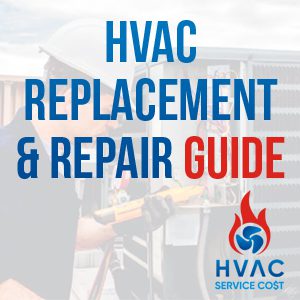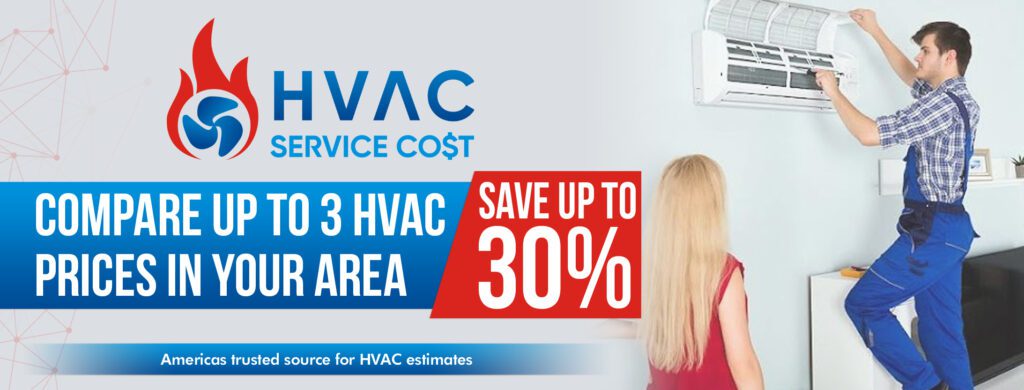
Signs Your HVAC System Needs Repair: Don’t Ignore These Warning Signs
A well-functioning HVAC (Heating, Ventilation, and Air Conditioning) system is essential for maintaining a comfortable and healthy indoor environment. However, like any mechanical system, HVAC units can experience wear and tear over time, leading to potential malfunctions. Ignoring the warning signs of a failing HVAC system can result in more significant issues, higher energy bills, and even health risks. In this comprehensive guide, we will explore the key signs that your HVAC system needs repair and why it’s crucial not to ignore these warning signs.
1. Unusual Noises
Banging, Clanking, and Grinding
One of the most obvious signs that your HVAC system needs repair is unusual noises. If you hear banging, clanking, or grinding sounds coming from your unit, it could indicate loose or broken components. These noises often point to issues with the blower motor or fan. Ignoring these sounds can lead to more severe damage and costly repairs.
Hissing and Whistling
Hissing or whistling noises may suggest a refrigerant leak or ductwork issues. Refrigerant leaks can reduce your system’s efficiency and harm the environment. Ductwork issues can affect airflow, leading to uneven heating or cooling. Both problems require immediate attention from a professional HVAC technician.
2. Inconsistent Temperature
Uneven Heating or Cooling
If you notice that some rooms in your home are significantly warmer or cooler than others, it’s a sign that your HVAC system isn’t distributing air properly. This inconsistency can be due to various reasons, including ductwork leaks, a malfunctioning thermostat, or a failing blower motor. An HVAC professional can diagnose and fix the issue to ensure even temperature distribution throughout your home.
Difficulty Maintaining Set Temperature
If your HVAC system struggles to maintain the temperature you’ve set on the thermostat, it may indicate that the system is not working efficiently. This could be due to a failing compressor, low refrigerant levels, or dirty coils. Ignoring this issue can lead to higher energy bills and discomfort in your home.

3. Poor Airflow
Weak Airflow
Weak airflow from your vents can be a sign of a failing blower motor, clogged air filters, or obstructed ductwork. Poor airflow reduces your system’s efficiency and can lead to hot and cold spots in your home. Regularly replacing air filters and scheduling professional maintenance can help prevent airflow issues.
Airflow Blockages
Obstructions in your ductwork, such as debris, mold, or pests, can significantly impact your HVAC system’s performance. If you suspect blockages, it’s essential to have your ducts inspected and cleaned by a professional. Ignoring airflow blockages can strain your system and lead to more severe problems.
4. Strange Odors
Musty or Moldy Smells
Musty or moldy smells coming from your HVAC system often indicate mold or mildew growth within the unit or ductwork. Mold can pose serious health risks, especially for individuals with allergies or respiratory conditions. It’s crucial to address this issue promptly by having your system inspected and cleaned by a professional.
Burning or Electrical Smells
Burning or electrical smells can be a sign of overheating components, such as the motor or wiring. These odors can indicate a serious problem that requires immediate attention to prevent potential fire hazards. Turn off your HVAC system and contact a professional technician to inspect and repair the issue.
5. Frequent Cycling
Short Cycling
Short cycling occurs when your HVAC system frequently turns on and off in short intervals. This issue can be caused by various factors, including a malfunctioning thermostat, refrigerant leaks, or an oversized unit. Short cycling not only reduces your system’s efficiency but also increases wear and tear on components. A professional technician can diagnose and fix the underlying cause of short cycling.
Constant Running
Conversely, if your HVAC system runs constantly without reaching the desired temperature, it may indicate a problem with the thermostat, compressor, or refrigerant levels. Constant running increases energy consumption and can lead to higher utility bills. It’s essential to have your system inspected and repaired to restore proper operation.

6. High Energy Bills
Unexplained Increase in Energy Costs
If you notice a sudden and unexplained increase in your energy bills, it could be a sign that your HVAC system is not operating efficiently. Various issues, such as dirty coils, low refrigerant levels, or a failing motor, can cause your system to work harder and consume more energy. Scheduling regular maintenance and addressing HVAC repairs promptly can help reduce energy costs.
Aging System
As HVAC systems age, they become less efficient and more prone to breakdowns. If your system is over 10-15 years old and you’re experiencing higher energy bills, it may be time to consider replacing it with a newer, more energy-efficient model. Upgrading to a modern HVAC system can significantly reduce energy consumption and lower your utility bills.
7. Poor Indoor Air Quality
Increased Dust and Allergens
If you notice an increase in dust, allergens, or other airborne particles in your home, it could be due to a failing HVAC system. Issues such as dirty air filters, clogged ductwork, or mold growth can negatively impact indoor air quality. Regularly replacing air filters and scheduling professional duct cleaning can help maintain a healthy indoor environment.
Humidity Problems
Your HVAC system plays a crucial role in maintaining proper humidity levels in your home. If you’re experiencing excessive humidity or dryness, it may indicate a problem with your system. High humidity can lead to mold growth, while low humidity can cause dry skin and respiratory issues. An HVAC technician can diagnose and resolve humidity problems to ensure a comfortable indoor environment.

8. Water Leaks
Refrigerant Leaks
Refrigerant leaks can cause your HVAC system to lose its cooling capacity and operate inefficiently. If you notice a puddle of liquid around your indoor unit, it could be a refrigerant leak. Refrigerant is essential for the cooling process, and a leak can lead to system failure. It’s crucial to have a professional inspect and repair refrigerant leaks promptly.
Condensation Drainage Issues
HVAC systems produce condensation, which is typically drained away through a condensate drain line. If the drain line becomes clogged or damaged, it can cause water to leak around your unit. Standing water can lead to mold growth and water damage. Regular maintenance and cleaning of the condensate drain line can prevent drainage issues.
9. Thermostat Issues
Incorrect Temperature Readings
If your thermostat is giving incorrect temperature readings, it can cause your HVAC system to cycle on and off at inappropriate times. This can lead to inefficient operation and discomfort in your home. Calibrating or replacing the thermostat can resolve this issue and restore accurate temperature control.
Unresponsive Thermostat
An unresponsive thermostat can prevent you from adjusting the temperature settings or turning your HVAC system on and off. This issue can be caused by faulty wiring, dead batteries, or a malfunctioning thermostat. Replacing the thermostat or repairing the wiring can restore proper functionality.

10. Aging HVAC System
Frequent Repairs
If your HVAC system requires frequent repairs, it may be a sign that it’s reaching the end of its lifespan. Constantly repairing an aging system can be more costly in the long run compared to replacing it with a new, energy-efficient model. An HVAC professional can help you determine whether it’s time to invest in a replacement.
Outdated Technology
Older HVAC systems may lack the advanced features and energy-efficient technology of newer models. Upgrading to a modern system can provide better performance, lower energy costs, and improved comfort. Additionally, newer systems often come with smart thermostat compatibility, allowing for convenient and precise temperature control. If you notice unusual noises, inconsistent temperatures, poor airflow, strange odors, frequent cycling, high energy bills, poor indoor air quality, water leaks, thermostat issues, or an aging system, it’s essential to contact a professional HVAC technician. A qualified technician can diagnose and repair the underlying issues, helping you avoid costly repairs and maintain a comfortable home.
Recognizing the signs that your HVAC system needs repair is crucial for maintaining a comfortable and healthy indoor environment. Ignoring these warning signs can lead to more severe issues, higher energy bills, and potential health risks. By addressing problems promptly and scheduling regular maintenance, you can extend the lifespan of your HVAC system and ensure its efficient operation.
Investing in regular maintenance and timely repairs not only improves the performance of your HVAC system but also contributes to energy savings and a healthier indoor environment. Don’t ignore the warning signs – take action to keep your HVAC system running smoothly and efficiently.




Leave a Reply